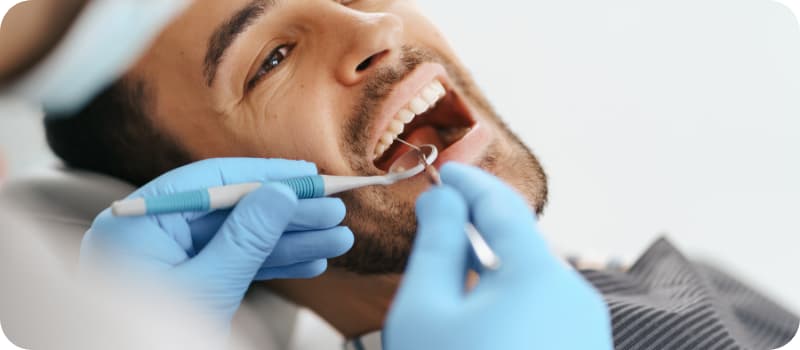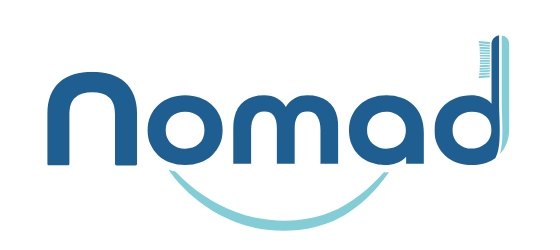
Thrush in babies and oral mycosis: symptoms, causes and treatments
Share
Thrush in babies and oral mycosis: symptoms, causes and treatments
Thrush in babies, also called oral thrush, is a common infection caused by a fungus of the genus Candida. This condition, which can also affect adults, especially in cases of immunodeficiency, occurs mainly in the mouth, on the tongue or lips. This article explores in detail the symptoms, causes and treatments for oral thrush, with a particular focus on infants.
Symptoms of thrush and oral yeast infections
Oral thrush and mycoses have several characteristic signs that can vary from person to person. Here are the most common symptoms:
White tongue or whitish coating : This deposit can extend to the inner cheeks, gums, palate and sometimes the lips.
Irritations : The presence of fungus on the tongue or in the mouth can cause pain or a burning sensation.
Difficulty eating : In babies, oral thrush may cause crying or discomfort during feedings.
Redness : Areas affected by oral thrush may become red and tender.
Oral thrush and sore throat : In some cases, the yeast infection can spread to the throat, causing additional discomfort.
In adults, similar symptoms may occur, especially in people with dentures or chronic illnesses.
Causes of oral thrush and yeast infections
Oral thrush is caused by the excessive proliferation of the fungus Candida albicans, naturally present in the oral flora. Several factors can promote this proliferation:
Weakened immune system : Babies and the elderly are at greater risk because of their weaker immunity.
Antibiotics : Prolonged use of antibiotics can upset the balance of beneficial bacteria and allow fungus to grow.
Breastfeeding : Breastfeeding thrush is common because the infection can be passed between the baby's mouth and the mother's nipple.
Inadequate oral hygiene : Poor hygiene can lead to oral infection or mouth fungus.
Dental prostheses : In adults, wearing poorly fitted or poorly maintained dentures can promote the appearance of oral mycoses.
Treatment of thrush and oral mycoses
Treatment for oral thrush depends on the person's age, the severity of symptoms, and the underlying causes.
For infants: Medical treatment : Pediatricians often prescribe antifungals in the form of a gel or solution to apply to the baby's mouth. These treatments are effective in eliminating infant thrush.
Enhanced hygiene : After each feeding, it is advisable to clean the baby's mouth with a damp compress to reduce deposits.
Disinfection of objects : Baby bottles, pacifiers and other objects that come into contact with the baby's mouth must be carefully sterilized.
For adults: Local treatments : Antifungal gels or mouthwashes are generally recommended to treat mycoses of the tongue and mouth.
Natural treatments : Solutions such as baking soda diluted in water can be used to soothe irritation and fight oral yeast infections.
Change in eating habits : Reducing your intake of sugar and yeast-rich foods can limit the growth of the fungus.
Special cases: In adults with severe oral thrush, systemic oral treatment may be necessary, especially if the infection spreads to the throat (thrush) or causes a sore throat.
For breastfeeding mothers, it is crucial to treat both the baby's mouth and the nipples to avoid reinfections.
Prevention of oral mycoses and thrush
Adopting a rigorous oral hygiene routine is essential to prevent oral infections such as thrush or mouth fungus:
Daily oral hygiene : Brush your teeth at least twice a day with a quality sonic toothbrush, such as those offered by Nomad.boutique , can help eliminate bacteria and fungi.
Cleaning accessories : For babies, sterilize bottles, pacifiers and toys regularly.
Medical monitoring : If it recurs, consult a healthcare professional to check for possible underlying causes (diabetes, immunodeficiency, etc.).
Reduction of sugars : Fungi like Candida albicans thrive in an environment high in sugars. Limiting sugars can reduce your risk.
How long does a thrush last?
The duration of an oral thrush depends on how quickly it is diagnosed and treated. In general:
With proper treatment, oral thrush in a baby or adult can clear up within one to two weeks.
Without treatment, the infection can persist and worsen, causing complications such as chronic irritation or pain in the throat.
Bottom Line: Thrush in babies and oral yeast infections are common but treatable infections. By practicing good oral hygiene practices and using the right products, such as a quality sonic toothbrush, it is possible to prevent and manage these conditions effectively. If you or your child develops symptoms of oral thrush, consult a healthcare professional promptly for an accurate diagnosis and appropriate treatment.
